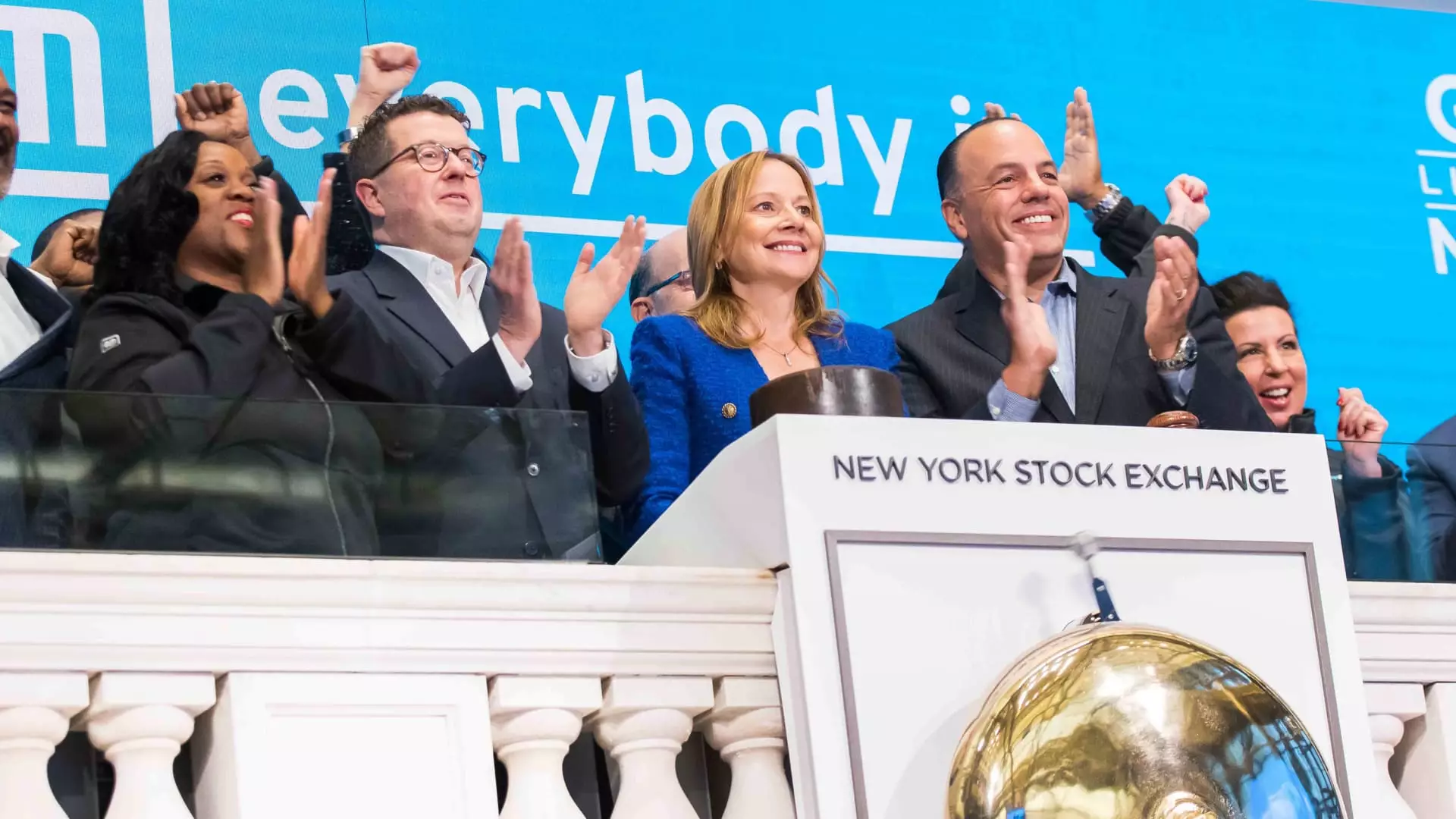In a significant announcement this week, General Motors (GM) has unveiled its plan to raise its quarterly dividend by 25%, now set at 15 cents per share. This decision comes amidst a backdrop of faltering industry sales and a challenging profit environment, aligning GM’s dividend policy with that of its main competitor, Ford Motor Company. Coupled with a robust $6 billion share repurchase initiative, GM appears to be strategically positioning itself to bolster investor confidence even as market dynamics shift unfavorably.
The increase in dividends reflects GM’s ongoing commitment to provide value to its shareholders, particularly during a time when many automakers are grappling with declining sales figures. The announcement follows GM’s strong quarterly performance metrics, which have consistently exceeded Wall Street forecasts. However, despite these commendable results, GM’s stock has struggled, with a reported decline of over 12% in 2023. This discrepancy raises critical questions about the sustainability of investor sentiment in the face of broader economic pressures.
Mary Barra, GM’s CEO, emphasized the company’s strong execution across its capital allocation strategies, which focus on reinvesting in business growth, maintaining a solid balance sheet, and returning capital to shareholders. These pillars not only reinforce GM’s operational resilience but also demonstrate a proactive approach to managing investor relations during tumultuous market periods.
Accompanying the dividend increase is GM’s announcement of a $6 billion share repurchase program, with the first $2 billion expected to be executed by the end of the second quarter. This repurchase initiative is significant as it targets the reduction of outstanding shares, thereby enhancing the value of remaining shares and potentially offsetting the downward pressure on stock prices. The specifics indicate that the number of shares repurchased will depend on the average daily trading price of GM’s stock throughout the program’s duration.
Wall Street’s concerns, however, do not seem to dissipate easily. Analysts have pointed to stagnating industry sales, uncertain regulatory landscapes, and a perceived lack of growth avenues as important factors contributing to GM’s stock performance. This situation creates a challenging paradox; while GM is making moves to return capital and instill investor confidence, the underlying health of the automotive market might overshadow these efforts.
GM’s guidance for 2025 projects a net income attributable to stockholders ranging between $11.2 billion to $12.5 billion, equating to earnings per share between $11 and $12. Alongside this, the adjusted earnings before interest and taxes (EBIT) is projected at between $13.7 billion and $15.7 billion, indicating an optimistic outlook that is crucial for addressing shareholder concerns.
The current challenges in the automotive sector, including the evolving regulatory environment and changes in consumer preferences towards electric vehicles, demand a dynamic approach from GM’s leadership. CFO Paul Jacobson has expressed confidence in the company’s ability to navigate these challenges, highlighting the strength of GM’s balance sheet and the agility of its business plan.
The strategic initiatives taken by GM, including the dividend hike and share repurchase program, underscore a deliberate attempt to sustain investor trust amidst unfavorable market conditions. While such moves can boost shareholder morale in the short term, GM must also focus on addressing the broader industry challenges that continue to pose risks to its profitability and growth trajectory. As the automotive landscape evolves, GM stands at a critical juncture where innovation and strategic foresight will be paramount in ensuring long-term sustainability and success. The effectiveness of these strategies will ultimately hinge on GM’s agility in adapting to market shifts and its commitment to delivering on its financial promises to stakeholders.

